By Tom Finn
5 Skills Every HR Leader Needs to Thrive in the AI Age
Tom Finn is the Co-Founder and CEO at LeggUP, the first company to insure employee productivity, wellbeing and retention.
As an HR leader, do you feel like you're constantly putting out fires and stuck in a reactive mode? Are you having trouble getting a seat at the executive table and being viewed as a true strategic partner? If so, it's time to significantly shift your mindset and approach. The role of HR is evolving rapidly, and companies desperately need innovative HR leaders who can proactively drive human capital strategies that provide a competitive edge. Follow these steps to elevate your game and become the forward-thinking HR superstar your organization needs.
Know Your Origins to Forge a New Path
To understand where HR needs to go, it's important to first look at where it came from. The personnel function emerged in the early 1900s as companies grew larger and labor laws increased. HR's early role was primarily administrative - hiring, firing, managing pay and benefits. It was regarded as more of a bureaucratic necessity than a strategic function.
As the 20th century progressed, HR started to take on more responsibilities like training, organizational development, and employee relations. However, it was still heavily focused on transactional activities and the "people relations" aspect of workforce management. Strategic direction and major organizational decisions were made by executives and line managers without much HR input.
That limited view of HR persists at many companies today. But those stuck in the past will be left behind as AI and automation rapidly reshape the workforce and skills needed to thrive. Modern HR leaders need to leave the administrative, transactional mindset behind and reposition themselves as proactive, strategic partners. That's the only way to have a real seat at the table and drive initiatives that provide immense value.
How to Become a Powerhouse Strategic Leader
1. Make People Strategy Your Passion: Live and breathe people strategy, not just processes. Become obsessed with understanding your company's strategic objectives, industry trends, competitive landscape, workforce needs and gaps. Use data to generate insights and get out in front of problems before they happen. Anticipate staffing needs, skill gaps, or organizational roadblocks before they derail the business. Never settle for just being an "order taker" - get involved early when strategies are being crafted. Have an opinion on the business and be ready with facts, data and logic to back it up.
2. Embrace Digital Transformation: The HR tech landscape is evolving at light speed with powerful platforms, AI capabilities, analytics and more. Developing digital leadership skills and utilizing the right HR tech stack is crucial to maximizing your effectiveness. Cloud HRIS, recruiting AI, digital coaching platforms, and data-driven insights can help you uncover key people insights, automate administrative work, upskill your workforce, streamline processes and much more. Vendor selection is also critical - identify strategic partners, not just vendors, that will enable you to execute and achieve your vision. Don't live in the past resting on HR decisions that that were made years ago.
3. Build an Agile, Future-Capable Organization: Work is being redesigned and the composition of teams will change with AI/automation displacement. As a strategic HR leader, it's your job to help reskill/upskill the workforce to be developed for the "future of work." Building a strength-based organizational culture with strong learning DNA will better enable your company to retrain, re-deploy and rapidly reconfigure teams as conditions shift. You need to cultivate an agile, change-ready workforce and leadership pipeline to achieve long-term success.
4. Champion Diversity, Equity & Inclusion: Top talent wants to work at purpose-driven companies that value diversity of backgrounds, perspectives, and experiences. Making DEI an organizational priority and infusing it into everything you do is both good for business and good for society. As an HR leader, you need to take the lead on attracting, developing and retaining diverse talent. Systemic change will never happen without strategic leadership.
5. Get Buy-in through Influence & Communication: Even the most brilliant people strategies won't go anywhere without buy-in and implementation. As an HR leader, you need to put a laser focus on influencing senior leaders, cultivating champions, effectively communicating your vision, and gaining conviction across the company. Data-driven storytelling, executive presence, emotional intelligence, and persuasive communication skills are a must to drive real change. To accomplish this you must know the business you are in and be ready to talk abou thte market needs and industry direction.
Step Up or Become Obsolete
The bottom line is that companies expecting to thrive amidst constant disruption need HR leaders with a modern, strategic mindset. HR can no longer rest on its legacy administrative laurels and still add value. While compliance and employee services will always be a part of HR's responsibilities, truly strategic HR professionals will focus their energy on future-proofing their workforce and developing human capabilities to propel the business forward.
As the demands on businesses change at an ever-accelerating pace, HR leaders who are stuck in an outdated, reactive operational mode will quickly become obsolete. On the other hand, those who embrace strategic partnership, digital leadership, agility and proactive planning will see their impact, influence and paychecks rise. They will get that long-coveted seat at the table, because they'll be indispensable strategic advisors to the C-Suite.
The choice is yours to either disrupt yourself and become a forward-thinking HR change agent, or be disrupted. Because in today's world, the companies that can get the "people strategy" piece right hold a major competitive advantage. Make sure you're the HR leader helping your company surge ahead, not fall behind. Your career success and ability to impact the world depends on it.

